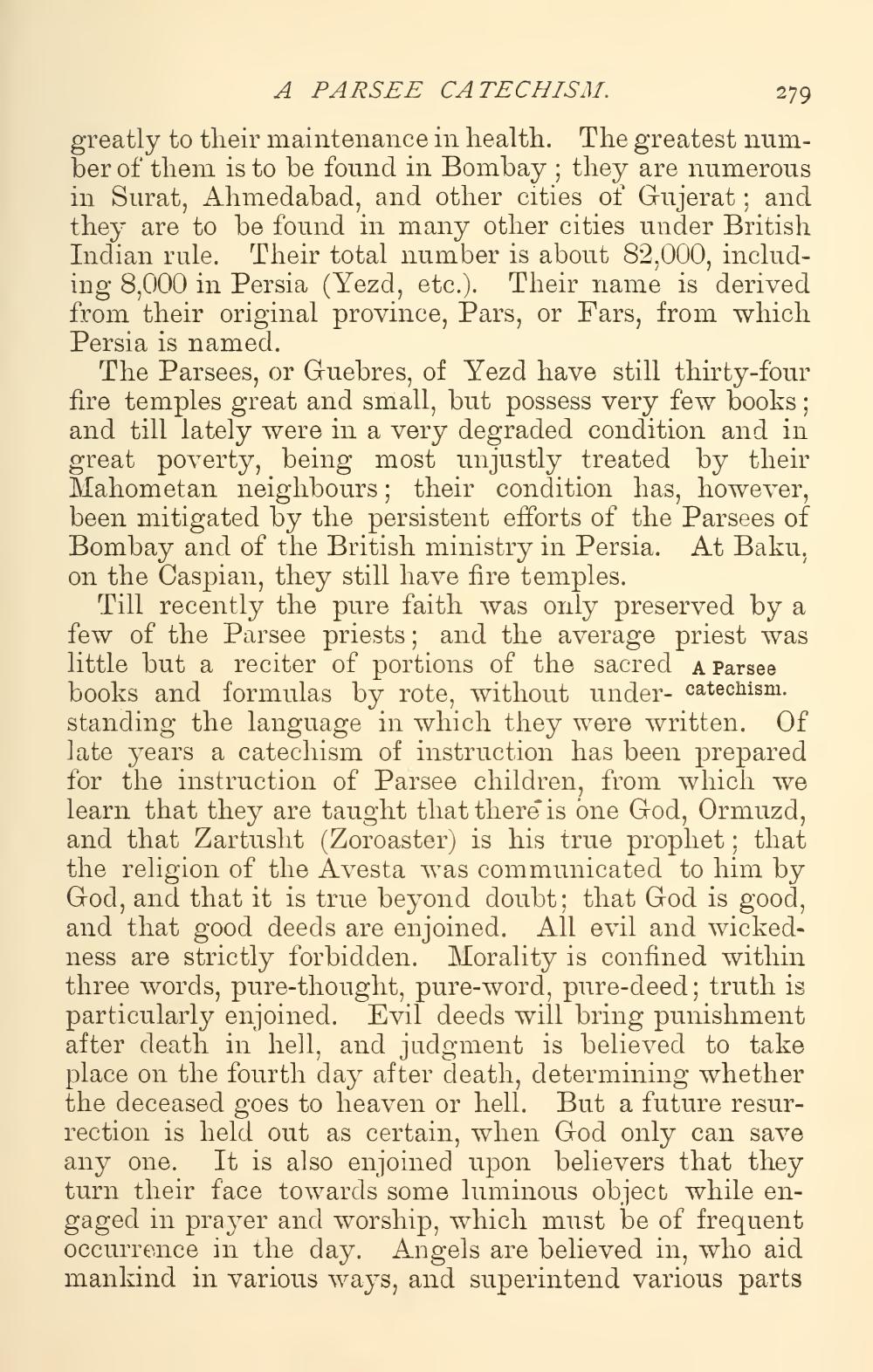________________
A PARSEE CATECHISM.
279 greatly to their maintenance in health. The greatest number of them is to be found in Bombay; they are numerous in Surat, Ahmedabad, and other cities of Gujerat; and they are to be found in many other cities under British Indian rule. Their total number is about 82,000, including 8,000 in Persia (Yezd, etc.). Their name is derived from their original province, Pars, or Fars, from which Persia is named.
The Parsees, or Guebres, of Yezd have still thirty-four fire temples great and small, but possess very few books; and till lately were in a very degraded condition and in great poverty, being most unjustly treated by their Mahometan neighbours; their condition has, however, been mitigated by the persistent efforts of the Parsees of Bombay and of the British ministry in Persia. At Baku, on the Caspian, they still have fire temples.
Till recently the pure faith was only preserved by a few of the Parsee priests; and the average priest was little but a reciter of portions of the sacred A Parsee books and formulas by rote, without under- catechism. standing the language in which they were written. Of late years a catechism of instruction has been prepared for the instruction of Parsee children, from which we learn that they are taught that there is one God, Ormuzd, and that Zartusht (Zoroaster) is his true prophet; that the religion of the Avesta was communicated to him by God, and that it is true beyond doubt; that God is good, and that good deeds are enjoined. All evil and wickedness are strictly forbidden. Morality is confined within three words, pure-thought, pure-word, pure-deed; truth is particularly enjoined. Evil deeds will bring punishment after death in hell, and judgment is believed to take place on the fourth day after death, determining whether the deceased goes to heaven or hell. But a future resurrection is held out as certain, when God only can save any one. It is also enjoined upon believers that they turn their face towards some luminous object while engaged in prayer and worship, which must be of frequent occurrence in the day. Angels are believed in, who aid mankind in various ways, and superintend various parts




